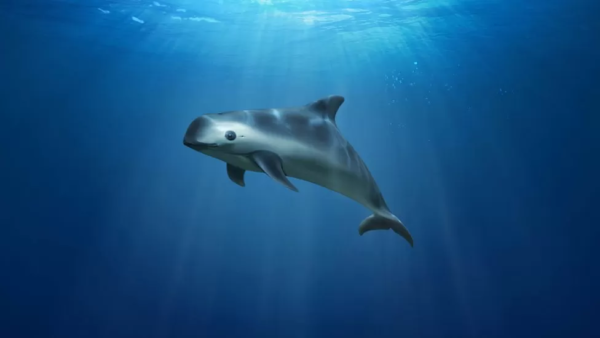Mexico has acknowledged that it faces sanctions from the international wildlife body CITES for not doing enough to protect the vaquita marina, a small porpoise that is the world’s most endangered marine mammal.
The sanctions have not yet been announced, but they could make it difficult for Mexico to export some regulated animal and plant products like crocodile or snake skins, orchids and cactuses. Commercial seafood species like shrimp would not be affected, but the ruling sets a precedent and some groups are pushing for seafood import bans.
Illustration of Vaquita: Greenpeace/Marcelo Otero/BBC
“While no one relishes economically painful sanctions, all other efforts to prompt Mexico to save the vaquita have failed,” said Sarah Uhlemann, international program director at the Center for Biological Diversity. “We hope these strong measures wake up the Mexican government.”
Mexico’s Foreign Relations Department said in a statement that CITES had ruled that Mexico’s protection plan for the vaquita was insufficient.
‘Collateral damage’
Studies estimate there may be as few as eight vaquitas remaining in the Gulf of California, the only place they exist and where they often become entangled in illegal gill nets and drown. The vaquita is not hunted in its own right – it is collateral damage, killed accidentally in the illegal gillnets set primarily for totoaba fish, the dried swim bladders, or maw, of which are highly sought-after in China.
The government has sunk concrete blocks with hooks to snare illegal nets in the last bit of the Gulf where the vaquitas have been seen.
The activist group Sea Shepherd, which has joined the Mexican Navy in patrols to deter the fishermen and to help destroy gill nets, says the efforts have successfully reduced the gillnet fishing. But with so few vaquitas remaining, that may not be enough.
Reports of this story can be found in Reuters, EIA, ABC, National Geographic and El Pais.
